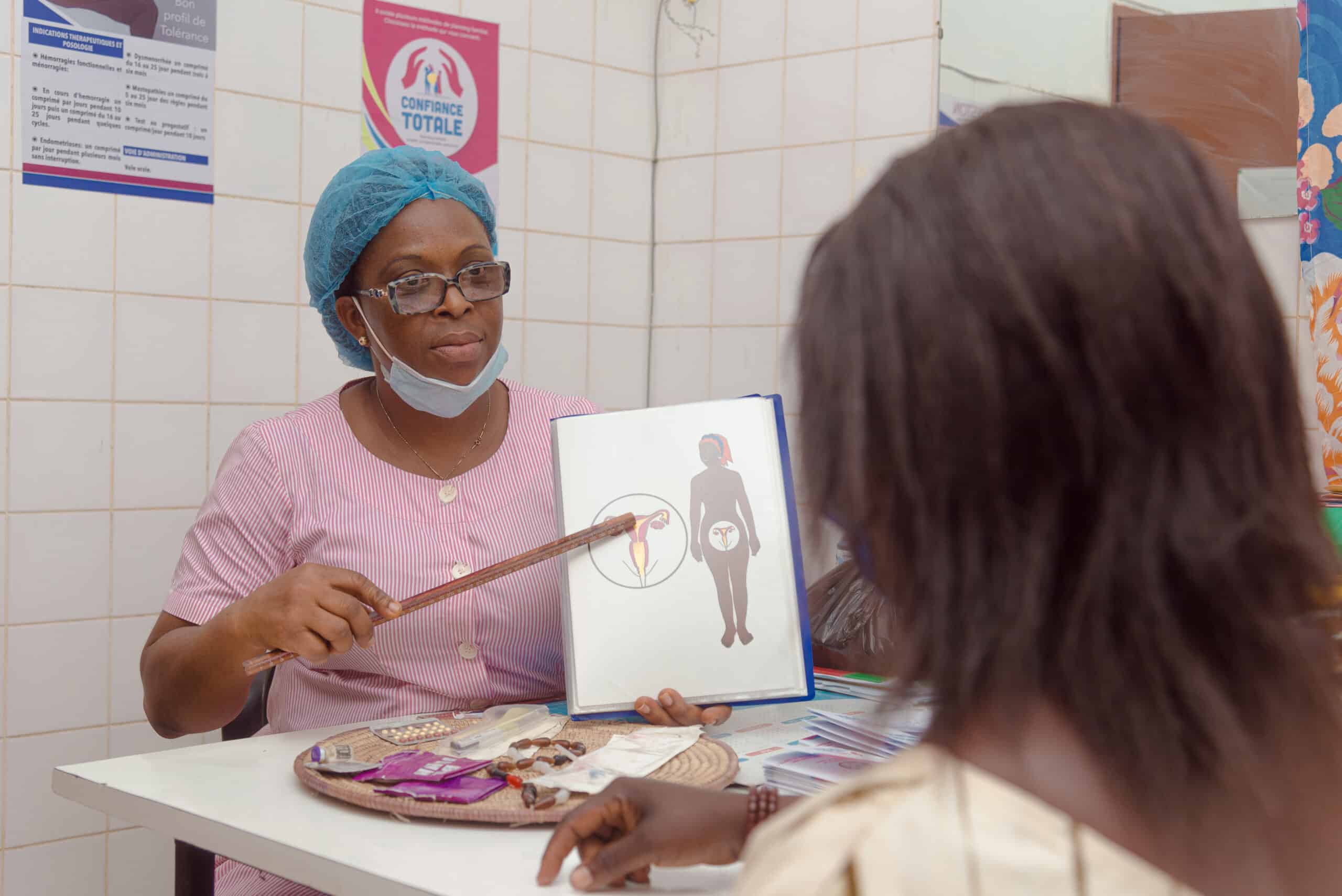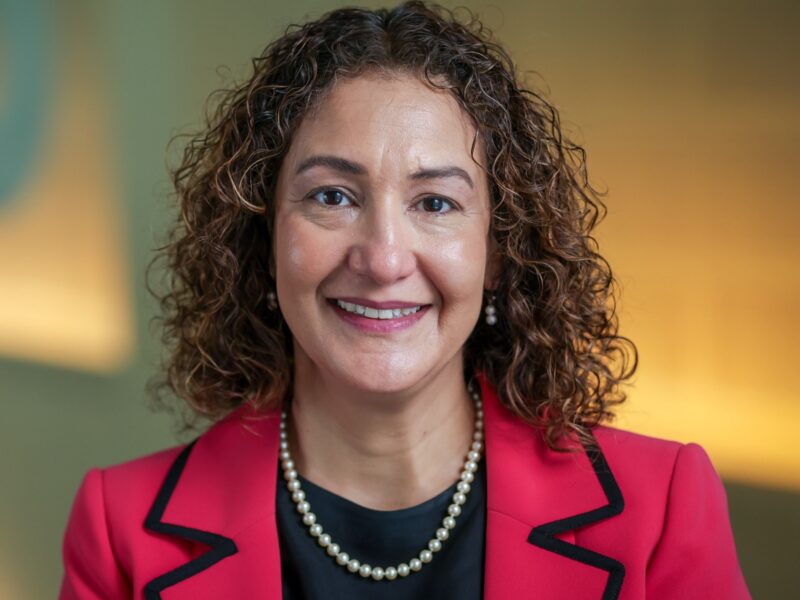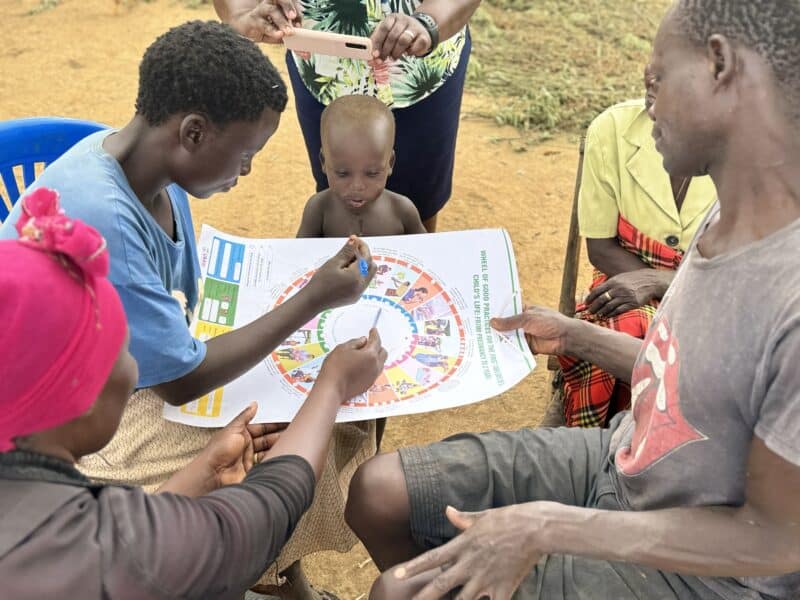Recall of radio jingles designed to build trust in the quality of family planning services at local health facilities in Togo was associated with an increase in many positive outcomes, including higher rates of the use of facility-dependent family planning methods and more positive attitudes about their value.
A new Johns Hopkins Center for Communication Programs study, published in The Journal of Health Communication, analyzed the Confiance Totale (“total confidence”) campaign, which created 45-second radio public service announcements to promote confidence in family planning methods and services, couple communication about family planning use, postpartum family planning and healthy birth spacing.
When COVID-19 emerged, new messages were developed to help people understand that family planning could still be used successfully during the COVID-19 lockdowns, could be accessed from pharmacies, and that providers and hotlines were available to speak to clients about their concerns related to family planning methods.
The public service announcements were aired up to 15 times a day on several local radio stations in the areas of Lomé and Blitta between July and December 2021 at all times of the day. In addition to Togo, the messages were also used in Burkina Faso, Côte d’Ivoire and Niger.
“The intensive broadcasting of spots and the distribution of broadcasting across different times of the day enabled us to capture the attention of a maximum number of listeners, whether they were at home, in their workshop, in the field, at the market or at their place of work,” says Hilaire Tokplo, senior program manager for West Africa Breakthrough ACTION.
Then, in April and May 2022, many months after the jungles stopped airing, the research team conducted household surveys of 2,200 people in Togo.
Despite the time lag, the campaign, headed by the CCP-led West Africa Breakthrough ACTION project, was remembered by approximately 45 percent of those surveyed, a positive outcome. CCP’s Dana Loll, PhD, the researcher who led the study, says it suggests that even in a world where social media is often dominant, when messages saturate the local radio airwaves, they can still drive behavior change.
“With social media and so many different approaches for reaching people, sometimes we’re not seeing as much investment in these traditional mass media campaigns as we have in the past,” Loll says. “Our research shows we can still use these methods to reach a lot of people and it can be effective.”
Despite decades of investment in family planning programming, contraceptive prevalence across the West African region remains low and fertility remains relatively high. In Togo, only 24.1 percent of married woman ages 15 to 49 use modern family planning.
The West Africa Breakthrough ACTION project, which comes to a close at the end of this year, was designed to use social and behavior change approaches to increase modern family planning access and informed, voluntary use in Burkina Faso, Côte d’Ivoire, Niger, and Togo.
The data from the household survey found that more men were exposed to the Confiance Totale messages (56.3 percent) than women (34.4 percent), likely because men have more access to information sources in Togo. However, results showed that the potential effects of the campaign were generally larger and more consistently associated with exposure among women. For example, exposure to the campaign was significantly associated with communicating with one’s partner about family planning – but only among women.
Finding more ways to reach women through these channels, the researchers say, could be a positive step toward increasing the use of facility-based family planning methods.
The global health community rightfully engages men in family planning decision-making and use as gatekeepers and as partners, Loll says. But in this study, men actually had more knowledge than women of family planning, more approving attitudes towards its use, and higher levels of self-efficacy to go to the health facility and communicate with their partners about it.
“Still, the results of the survey show that the Confiance Totale messages seem to resonate with and affect with women more deeply than men,” Loll says. “This suggests that, beyond the campaign, women still need more access to information and more confidence in their ability to talk to male partners and health care providers.
“If we could think about how we can increase exposure among women, we could be even more successful in helping women achieve their reproductive intentions,” she says.
The study suggests that the consistent association between exposure to the campaign and positive ideational and behavioral variables may demonstrate the enduring effects of the campaign, even when no longer being actively broadcast and even with so much noise about other pressing concerns such as the COVID-19 pandemic.
“The results of this evaluation suggest mass media campaigns can be an effective way to reach individuals about [family planning] within the context of disruptive or emergency contexts,” the researchers conclude.
“Evaluation of the Confiance Totale Campaign in Togo: Associations Between Campaign Exposure and Family Planning Outcomes of Interest,” was written by Dana Loll, Hilaire Tokplo, Timothy R. Werwie, Serge Prince-Agdobjan, Djibril Ouro-Gnao, Claudia Vondrasek, Sethson Kassenge, Robert Hugues Yaovi Nagbe, Lorimpo Babogou, Erin Portillo and Danielle Naugle.
This work is funded through United States Agency for International Development under the Breakthrough ACTION Cooperative Agreement #AID-OAA-A-17-00017.





